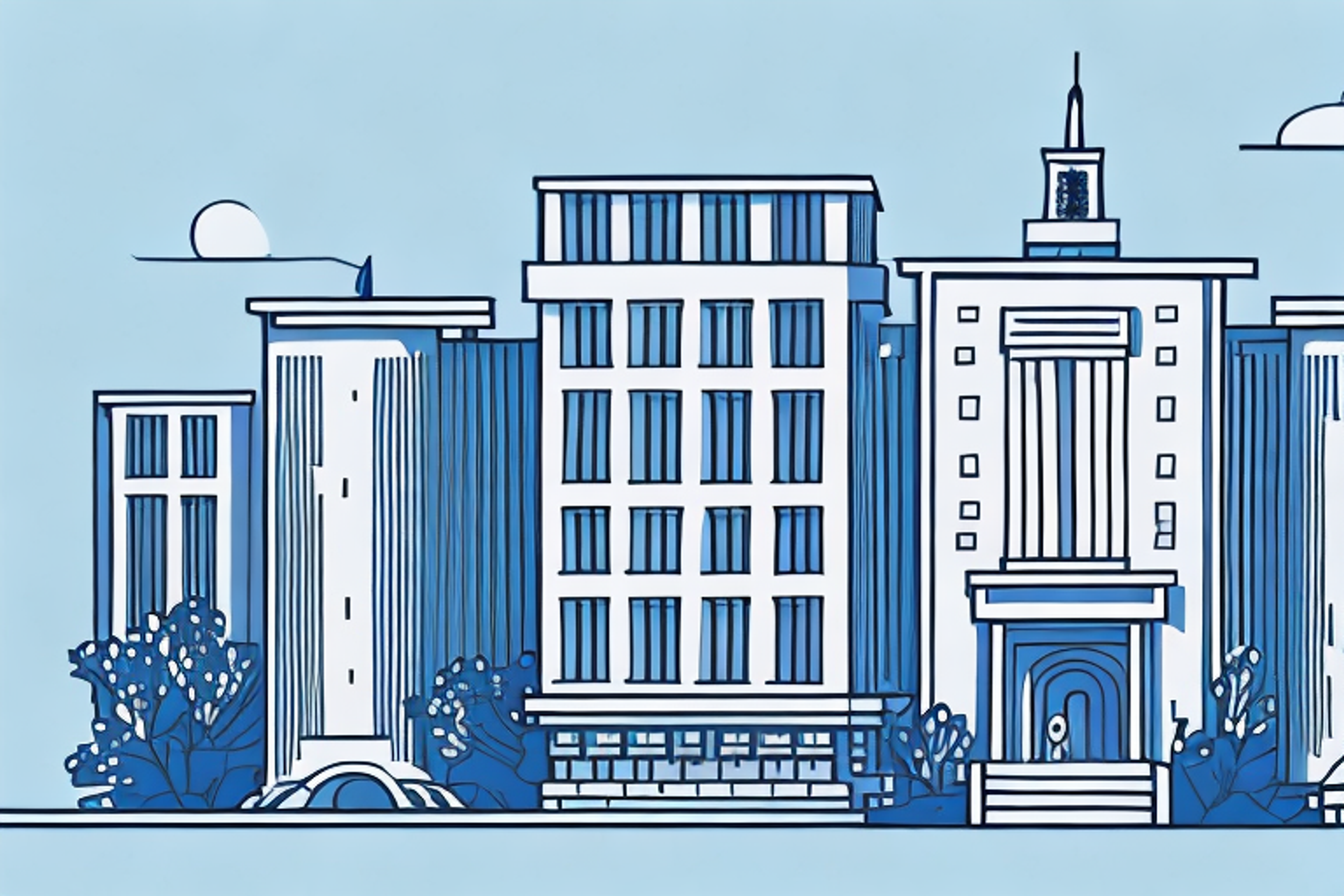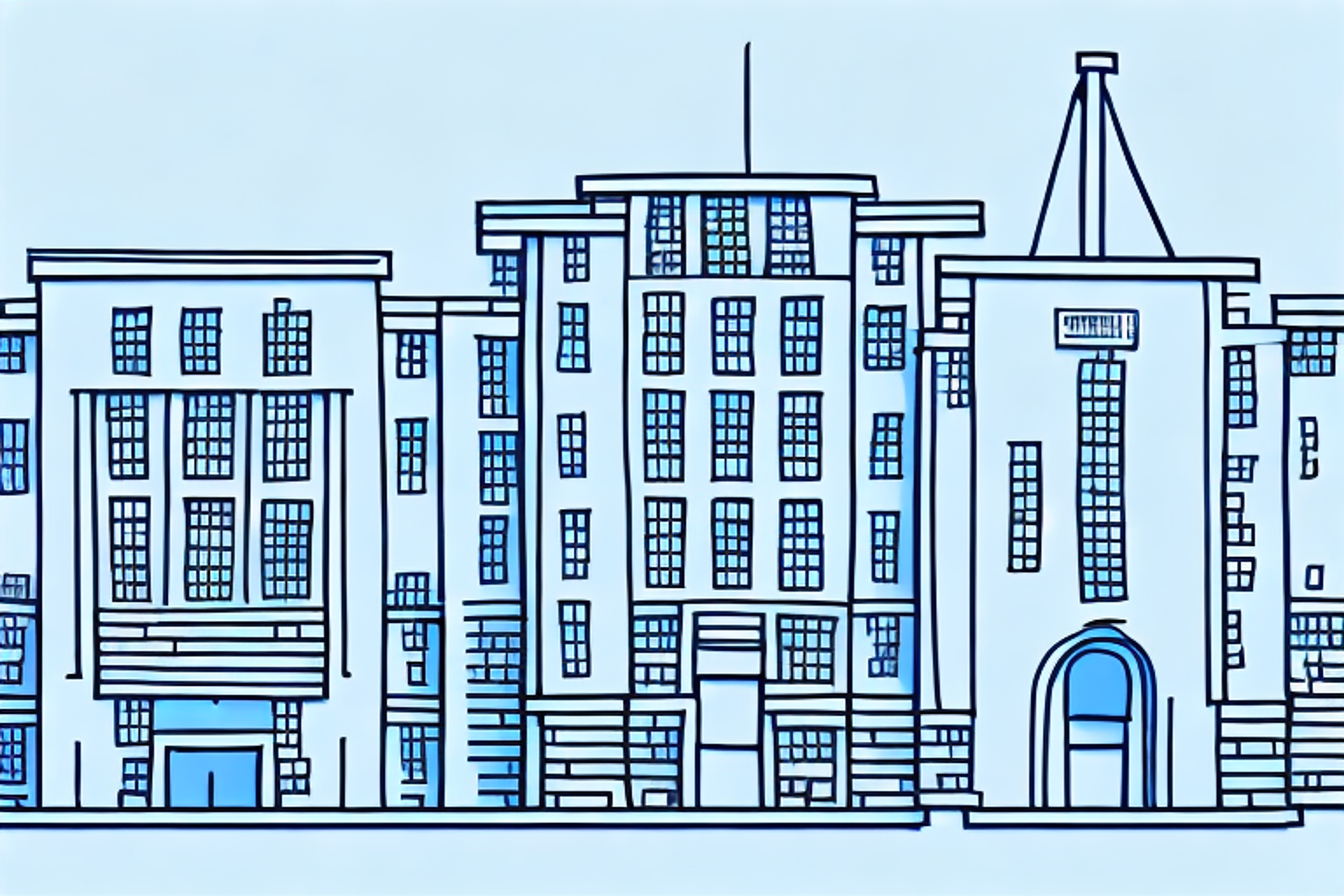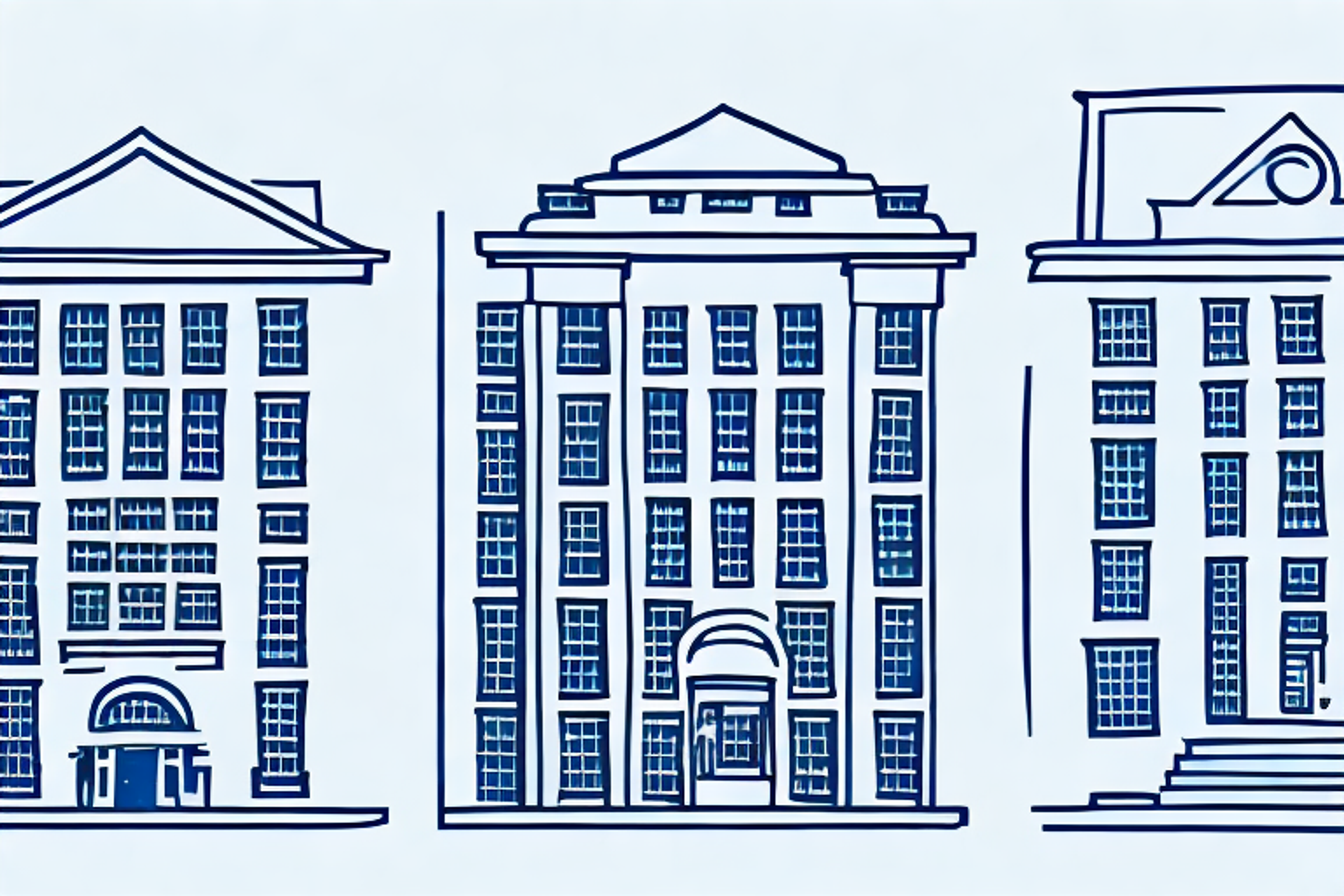Columbia Law School Vs. University of Chicago Law School: An In-Depth Comparison
If you're considering pursuing a law degree, you may be wondering which school is the right fit for you.
Posted March 6, 2025

Table of Contents
Are you considering attending law school and wondering which institution to choose? Look no further than Columbia Law School and University of Chicago Law School. These two highly respected institutions have similarities, but there are also key differences to be aware of before making your decision. In this in-depth comparison article, we'll explore everything you need to know about Columbia and Chicago law schools.
Introduction: What to Expect in this Comparative Analysis
In this article, we'll cover all the aspects you need to consider before choosing between Columbia and Chicago law schools. We'll compare their rankings, faculty, curriculum, student life, cost, job prospects, bar exam pass rates, alumni network, and expert opinions from lawyers. By the end of this article, you'll have a thorough understanding of both law schools and be able to make an informed decision.
Before we dive into the details, it's important to note that both Columbia and Chicago law schools are highly respected institutions with their own unique strengths. Columbia is known for its strong corporate law program and its location in New York City, while Chicago is renowned for its rigorous academic curriculum and its emphasis on law and economics.
In addition to comparing the two law schools, we'll also provide insights into the application process, including tips on how to write a standout personal statement and how to prepare for the LSAT. We'll also discuss the importance of visiting each campus and speaking with current students and faculty members to get a better sense of the school's culture and community.
Law School Rankings and Reputation: How Do They Compare?
When it comes to law school rankings, both Columbia and Chicago are highly respected institutions. According to US News and World Report, Columbia Law School is ranked fourth in the country, while University of Chicago Law School comes in at number five. Despite the slight difference in ranking, both law schools have excellent reputations among legal professionals and are recognized both nationally and internationally.
However, there are other factors to consider when choosing a law school beyond just rankings and reputation. For example, location can play a significant role in job opportunities and networking. Columbia Law School is located in New York City, which is home to many top law firms and legal organizations. On the other hand, the University of Chicago Law School is located in the heart of Chicago, which also has a thriving legal community.
Another important factor to consider is the curriculum and areas of specialization offered by each law school. Columbia Law School is known for its strong programs in corporate law and international law, while the University of Chicago Law School is known for its focus on law and economics. It's important to research and consider these factors in addition to rankings and reputation when making a decision about where to attend law school.
Faculty and Teaching Methods: Understanding the Differences
The faculty at both Columbia and Chicago law schools are highly accomplished and respected in their fields. However, the teaching methods at each school vary. Columbia is known for its traditional lecture-style teaching, where professors teach in a more traditional classroom setting. On the other hand, Chicago is known for its Socratic method, which involves more interactive and participatory teaching styles. Both teaching methods have their benefits, and it's important to consider which one fits your learning style the most.
In addition to teaching methods, it's also important to consider the faculty's research and publications. Columbia law school has a strong emphasis on legal theory and scholarship, with many of its faculty members publishing influential works in the field. Chicago law school, on the other hand, has a reputation for its interdisciplinary approach to law, with faculty members conducting research in areas such as economics and political science. When choosing a law school, it's important to consider not only the teaching methods but also the faculty's research interests and publications, as they can greatly impact your legal education and career.
Curriculum and Course Offerings: Which School Has More to Offer?
When it comes to curriculum and course offerings, both Columbia and Chicago law schools offer a comprehensive education. Columbia Law School's curriculum focuses on a variety of subjects such as corporate law, international law, and environmental law. On the other hand, University of Chicago Law School places more emphasis on legal theory and law and economics. Both schools also offer clinics and experiential learning opportunities to provide students with practical experience.
However, Columbia Law School has a unique program called the "Columbia Law and Technology Association" which offers courses and events related to technology and the law. This program is designed to prepare students for the growing field of technology law and provides them with opportunities to network with professionals in the industry. University of Chicago Law School, on the other hand, offers a program called "The Law and Philosophy Workshop" which explores the intersection of law and philosophy. This program is ideal for students who are interested in legal theory and want to delve deeper into the philosophical underpinnings of the law.
Student Life and Campus Culture: What to Expect at Columbia and Chicago
While both law schools offer incredible learning environments, the student life and campus culture differ. Columbia Law School is situated in New York City, giving students access to a bustling city environment. Columbia also offers a variety of student organizations and events to allow students to network and socialize. Meanwhile, the University of Chicago's campus is located in the Hyde Park neighborhood, which offers a quieter and more serene atmosphere. While the campus culture at both schools is distinct, both law schools offer students opportunities to engage with their peers and build lifelong relationships.
Additionally, Columbia Law School has a strong emphasis on public interest law and social justice. The school offers numerous clinics and pro bono opportunities for students to gain hands-on experience in these areas. On the other hand, the University of Chicago Law School has a reputation for its rigorous academic program and emphasis on theoretical legal studies. The school also has a strong focus on interdisciplinary studies, allowing students to explore connections between law and other fields such as economics and philosophy. Regardless of the differences in campus culture, both schools provide students with a well-rounded legal education and prepare them for successful careers in the legal field.
Cost of Attendance: Comparing Tuition Fees, Scholarships, and Financial Aid
Attending law school can be expensive, so it's important to consider the cost of attendance and the available financial aid. Columbia Law School and University of Chicago Law School are both private institutions, with high tuition fees. However, both schools offer a variety of scholarships and financial aid to help students cover their expenses. It's essential to research and compare the costs and available financial aid options to make an informed decision about your investment.
Additionally, it's important to consider the cost of living in the area surrounding the law school. For example, New York City, where Columbia Law School is located, has a higher cost of living compared to Chicago, where University of Chicago Law School is located. This means that students attending Columbia Law School may need to budget more for housing, food, and other expenses. It's important to factor in these additional costs when comparing the overall cost of attendance between different law schools.
Job Prospects After Graduation: Employment Outcomes of Both Schools
Columbia Law School and University of Chicago Law School both have excellent job prospects for graduates. Graduates from both schools have successful careers in various legal fields, including corporate law, public interest, and government. Columbia Law School graduates have slightly higher employment rates, but both schools have impressive job outcomes. It's important to research the job prospects for your desired legal field and consider which school would best prepare you for a successful career.
Additionally, both schools have strong alumni networks that can provide valuable connections and opportunities for graduates. Columbia Law School has a large and active alumni association, with members working in a wide range of legal fields and industries. University of Chicago Law School also has a dedicated alumni network, with graduates working in top law firms, government agencies, and non-profit organizations. These networks can be a valuable resource for job seekers and can help graduates navigate the competitive legal job market.
Bar Exam Pass Rates: Which School Prepares Students Better?
Passing the bar exam is a significant milestone for any law student. Both Columbia and Chicago law schools have impressive bar exam pass rates, with Columbia having a slightly higher rate. It's important to consider the school's bar exam preparation resources and support to ensure you are prepared for the exam.
Alumni Network and Connections: Building a Professional Network
The alumni network and connections through Columbia Law School and the University of Chicago Law School are invaluable. Graduates from both schools have successful careers in a range of legal fields, nationally and internationally. Columbia has a larger alumni network, but both schools offer extensive networking opportunities through mentorship programs, alumni events, and more. It's essential to consider the strength of the school's alumni network and which school would provide you with the connections you need.
Conclusion: Which Law School is the Best Fit for You?
Choosing between Columbia Law School and University of Chicago Law School is a significant decision. Both schools offer incredible learning opportunities, but each has unique differences to consider. It's important to consider your personal goals and needs before making a decision. Researching the school's rankings, faculty, curriculum, cost, job prospects, bar exam pass rates, and alumni network will provide a comprehensive understanding of each school.
Additional Considerations to Keep in Mind Before Making Your Decision
When choosing between Columbia and Chicago law schools, it's important to consider additional factors such as the location, class size, diversity, and extracurricular activities offered. These factors can impact your overall experience at the institution.
Expert Opinions on Choosing Between Columbia and Chicago Law School
Many legal professionals have shared their opinions on Columbia and Chicago law schools, providing valuable insight. Seeking advice from experts and mentorship from alumni can help guide your decision-making process.
How to Apply to Columbia or Chicago Law School
Applying to law school can be a daunting process, but it's essential to follow each school's application process to have the best chance of acceptance. Columbia and Chicago law schools have separate application requirements, including transcripts, standardized test scores, letters of recommendation, essays, and interviews. It's important to plan a timeline for your application process and ensure you meet all the deadlines.
After exploring all the factors, the decision between Columbia Law School and University of Chicago Law School ultimately depends on your individual goals and needs. By considering each aspect in detail, you can be confident in your decision and begin your journey to a rewarding legal career.












